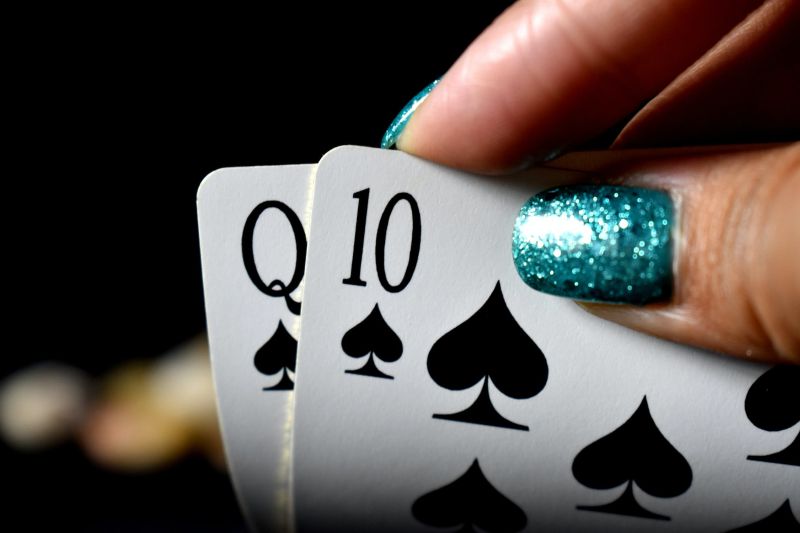Poker etiquette considerably impacts how enjoyable it is for everyone involved, so it's essential to know and follow the rules. In addition, good poker etiquette helps create an environment where all players feel respected and comfortable, making the game fun.

This article will discuss some of the most common forms of poker etiquette and why they are essential. We'll also give you tips on how to incorporate them into your games so that you can ensure a pleasant experience for all participants.
What is Poker Etiquette & Why Is It Important
Poker etiquette is a set of rules that all players should obey when playing any poker game. It consists of basic, unspoken rules like acting in turn, respecting fellow players, and demonstrating good sportsmanship. It's also important to pay attention to the small details, such as wearing appropriate attire and avoiding disruptive behavior like talking excessively at the table.
Good poker etiquette ensures that everyone has an enjoyable gaming experience and provides fair play by minimizing misunderstandings caused by poor communication or ill-mannered behavior by one or more players. It's important to note that failure to adhere to these established customs can not only ruin a game but can also be seen as disrespectful within the poker community, both online and offline.
Understanding and following basic poker etiquette are essential for anyone looking to have a pleasant and successful gaming experience.
Common Forms of Poker Etiquette
Depending on the game type, poker can be a serious and competitive activity or a just-for-fun pastime. However, regardless of the mood you're in when playing, there are certain etiquette habits that all players should abide by.
For example, it's improper to show your cards to other players or intentionally expose them when folding. In addition, maintaining eye contact with opponents demonstrates respect and good sportsmanship, while excessive celebration over winning hands is often considered inappropriate.
Additionally, it's polite to maintain control of your emotions when dealing with difficult situations involving bad calls and unlucky cards while refraining from actively discussing hands after they're finished.
Along with developing beneficial gaming tactics, understanding basic poker manners is vital for every player to ensure a positive environment at all times.
Respect for Other Players
Poker is a game of strategy, but respect for other players is just as important. Playing with a spirit of sportsmanship is fundamental to any healthy and cordial environment at the poker table. Respect for opponents should be displayed at all times, whether one is winning or losing.
Etiquette, such as not criticizing other players, understanding that wrong hands are part of the game, and avoiding slow playing, should be observed during each game. Practicing basic respect can help to build relationships and goodwill between players - making the underlying nature of the game more fun and enjoyable for everyone involved.
Being Courteous at the Table
Being courteous at the poker table goes a long way toward ensuring everyone's experience is pleasant. Besides being mindful of common courtesies such as not talking at inappropriate times, refraining from using offensive words or body language, and avoiding unnecessary disruptions, players should strive to be understanding and gracious when in a friendly game.
Show your opponents respect by paying attention to your play instead of criticizing theirs, applauding their winning hands, and offering lovely comments or encouragement during the game. In addition, if you ever feel like you need to take a break for any reason, let the table know ahead of time so that everyone is aware.
Good etiquette can help foster an atmosphere conducive to fun, bonding, and mutually rewarding experiences.
Following the Rules of the Game
Following the rules helps ensure that each round is fair and that all players can enjoy the game. Players should take the time to familiarize themselves with the rules for a particular poker variation, including blinds, side pots, and hands.
Additionally, reciprocate good form by being courteous and respectful to other players. It is essential to keep the conversation light-hearted, show courtesy in winning and losing, remain focused throughout a hand, and act responsibly in bet sizing and stake amounts.
Following these steps will ensure that all poker game functions are executed with grace and civility.
Tips for Incorporating Good Poker Etiquette into Your Games
Etiquette should be observed offline in physical poker games and even when you play online poker. Appropriate etiquette involves keeping cards hidden from the view of others, minimizing the amount of conversation during play, refraining from distracting actions or comments, and maintaining a respectful demeanor even in moments of disappointment or luck.
Being mindful about how you move pieces on the board can also make a difference in a high-stakes game - sweeping chips off the table in victory may indicate a cocky attitude, and refusing to follow the cues of other players could come across as rude or improperly aggressive. Following these simple tips gives players a better chance of achieving success while ensuring everyone at the table has an enjoyable time.
Final Thoughts
The etiquette of poker is as important in gaming as strategy and skill. Remembering to observe the guidelines for proper behavior will help create a pleasant atmosphere that encourages fun, productive gameplay.
In addition, it is essential to remain courteous and respectful when playing and follow the game's rules. Practicing good etiquette can not only benefit oneself but also benefit fellow players, allowing everyone to have a memorable and enjoyable time.






























.png?v=1.014689135)





